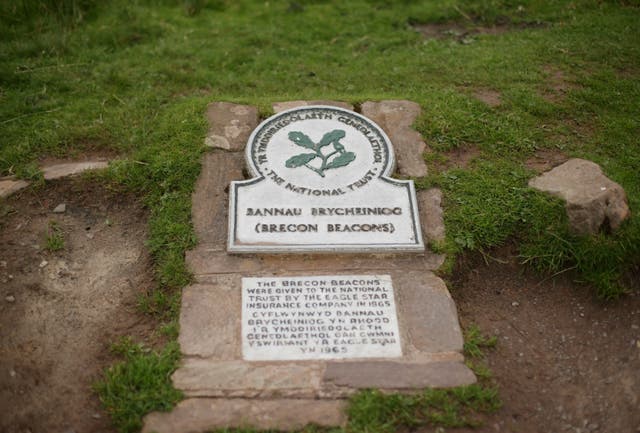Backlash over Brecon Beacons name change
The national park will now be formally known by its Welsh name Bannau Brycheiniog.

The decision to rename the Brecon Beacons National Park has been criticised as a symbolic attempt to look “trendy” which could “undermine” the region’s international identity, senior Tories claimed.
The park’s management claimed the association with a wood-burning, carbon-emitting blazing beacon was “not a good look” as the name was dropped in favour of its Welsh counterpart Bannau Brycheiniog.
Welsh Secretary David TC Davies expressed concern about the move and said that he had “no prior notice” of the name change.
He said: “What concerns me is the fact there was no consultation and people who live and work in the national park were not given the opportunity to voice their opinion. It would be somewhat alarming if this was an entirely executive decision.
“The Brecon Beacons has a long-standing international identity and that is the name it will always be know by to so many around the world. I do question the cost and feel this is money that could have been used to encourage tourism in a better way. As a bilingual country, I fail to understand why the Welsh name cannot be used alongside the English name.”
He said that he had never linked the logo with climate change, calling the rebrand “nothing more than a political swipe”.
Brecon and Radnorshire’s Tory MP Fay Jones questioned the cost and impact of the “symbolic” rebrand and demanded to know why local people were not consulted.
“I’m amazed that a change of name should be imposed on those who live and work in the National Park without any consultation,” she said.
“I am worried that this is symbolic. This is about looking trendy and jumping on a sustainability bandwagon for PR purposes.”
Welsh Tory leader Andrew RT Davies said: “The Beacons are as recognisable outside of Wales as they are here. Why undermine that?”

The Welsh name for the region translates as “peaks of Brychan’s kingdom” – a reference to the fifth-century king in the region.
Catherine Mealing-Jones, the national park authority’s chief executive, told the PA news agency: “Given that we’re trying to provide leadership on decarbonisation, a giant burning brazier is not a good look.
“Our park is shaped by Welsh people, Welsh culture, and as we looked into it we realised the brand we’ve got and the name we’ve got, it’s a bit of a nonsense, it doesn’t really make any sense – the translation Brecon Beacons doesn’t really mean anything in Welsh.
“We’d always had the name Bannau Brycheiniog as the Welsh translation and we just felt we needed to put that front and centre as an expression about the new way we wanted to be celebrating Welsh people, Welsh culture, Welsh food, Welsh farming – all of the things that need to come with us as we go through this change in the management plan.”
But she acknowledged that “people are used to calling the park by the name everyone’s used for 66 years so we don’t expect everyone to use Bannau Brycheiniog, at least straight away”.
Welsh actor Michael Sheen, star of The Damned United and Good Omens, filmed a promotional video to celebrate the name change, with words written by poet and author Owen Sheers.
Sheen said he welcomed the “reclamation of the old Welsh name – an old name for a new way of being”.
Downing Street said it expected people to carry on using the Brecon Beacons name and actions “rather than nomenclature” were the key to tackling climate change.
“The public, I’m sure, will continue to … use both the English and the Welsh names,” the Prime Minister’s official spokesman said.
Asked if other places called “beacon” should be renamed, the spokesman said: “I think on the specific issue of climate change, I think it’s tangible action that’s important, rather than nomenclature.”





